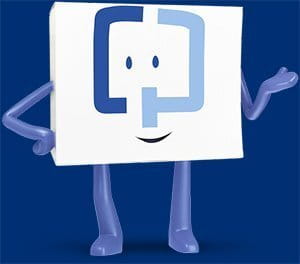Real Cologuard®
story: Gary
Screened with Cologuard
Gary found himself settling into a new state, meeting with a new healthcare provider, and having a conversation he was all too familiar with.
He needed to get screened for colon cancer.
“I had the chance to do it in 2019, but I blew it off,” he admitted. “I didn’t really want to do it, and I just didn’t feel like my health was in danger.”
At the time, Gary and his wife were living in Florida where he made sure to enjoy all the swimming and outdoor exercise the Gulf Coast has to offer. When he and his wife returned to the Midwest the following year, he quickly settled into his new routine – trading active days at the beach for hiking through state parks with his dogs, and even finding a new healthcare provider to keep up with routine visits.
That’s when his healthcare provider suggested Cologuard for Gary, who was 54 and at average risk for colon cancer. And this time, something clicked for Gary about getting screened.
“It seemed pretty straightforward and easy to do after my doctor explained it,” he said.
“It’s noninvasive, it’s in the privacy of your own home and for me, it got rid of the embarrassment I was feeling.”
And as soon as he received his kit, he collected his sample and had it picked up from his front porch without ever leaving home. Right before Thanksgiving, he received his positive result.
Any nerves Gary had quickly dissolved after the colonoscopy, which revealed a precancerous polyp. It wasn’t anxiety that Gary was feeling – but rather profound relief. Relief that the precancerous polyp was discovered, relief that it was removed and he didn’t need further treatment, and relief that he had gotten screened to begin with.
Because had he not had an option like Cologuard, he said, he might not have screened at all.
Now he’s the one talking about colon cancer screening with others – his wife, brother and even some of his friends all getting screened with a little extra encouragement.
“Get screened as quickly as possible,” he tells others. And for those at average risk, the American Cancer Society recommends starting regular colon cancer screening at age 45.1
And he knows there are plenty of others just like him. Which is why sharing his story is always worth it.
References
1. Wolf AMD, Fontham ETH, Church TR, et al. Colorectal cancer screening for average‐risk adults: 2018 guidelines update from the American Cancer Society. CA Cancer J Clin. 2018;68(4):250‐281. doi:10.3322/caac.21457
Cologuard is intended to screen adults 45 years of age and older who are at average risk for colorectal cancer by detecting certain DNA markers and blood in the stool. Do not use if you have had adenomas, have inflammatory bowel disease and certain hereditary syndromes, or a personal or family history of colorectal cancer. Cologuard is not a replacement for colonoscopy in high risk patients. Cologuard performance in adults ages 45-49 is estimated based on a large clinical study of patients 50 and older. Cologuard performance in repeat testing has not been evaluated.
The Cologuard test result should be interpreted with caution. A positive test result does not confirm the presence of cancer. Patients with a positive test result should be referred for colonoscopy. A negative test result does not confirm the absence of cancer. Patients with a negative test result should discuss with their doctor when they need to be tested again. False positives and false negative results can occur. In a clinical study, 13% of people without cancer received a positive result (false positive) and 8% of people with cancer received a negative result (false negative). Rx only.

